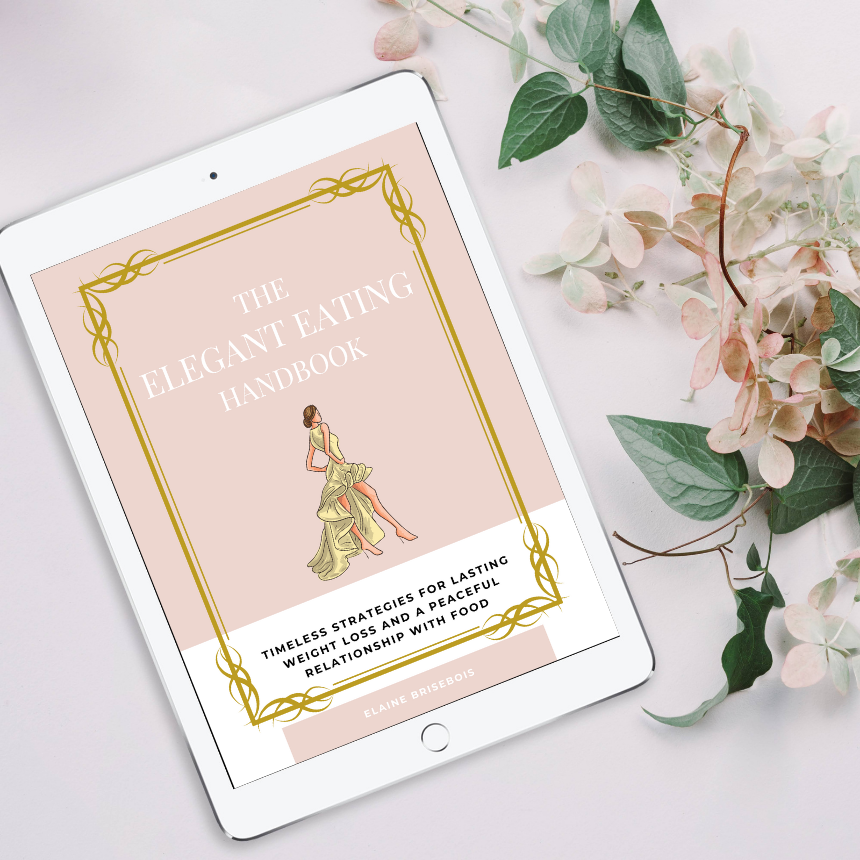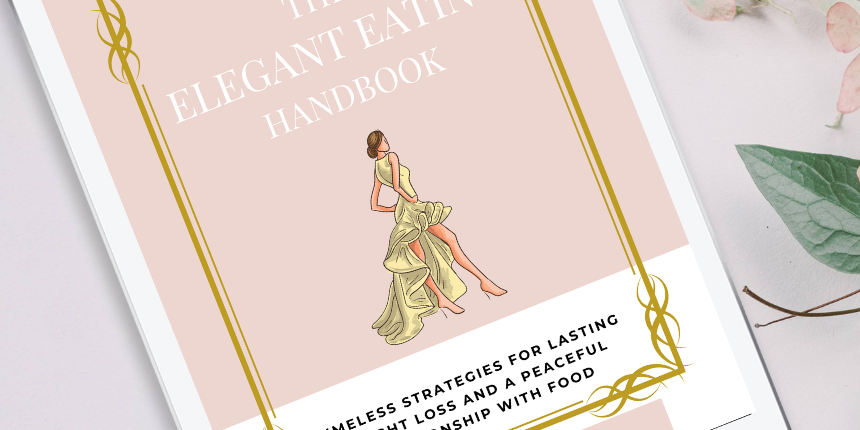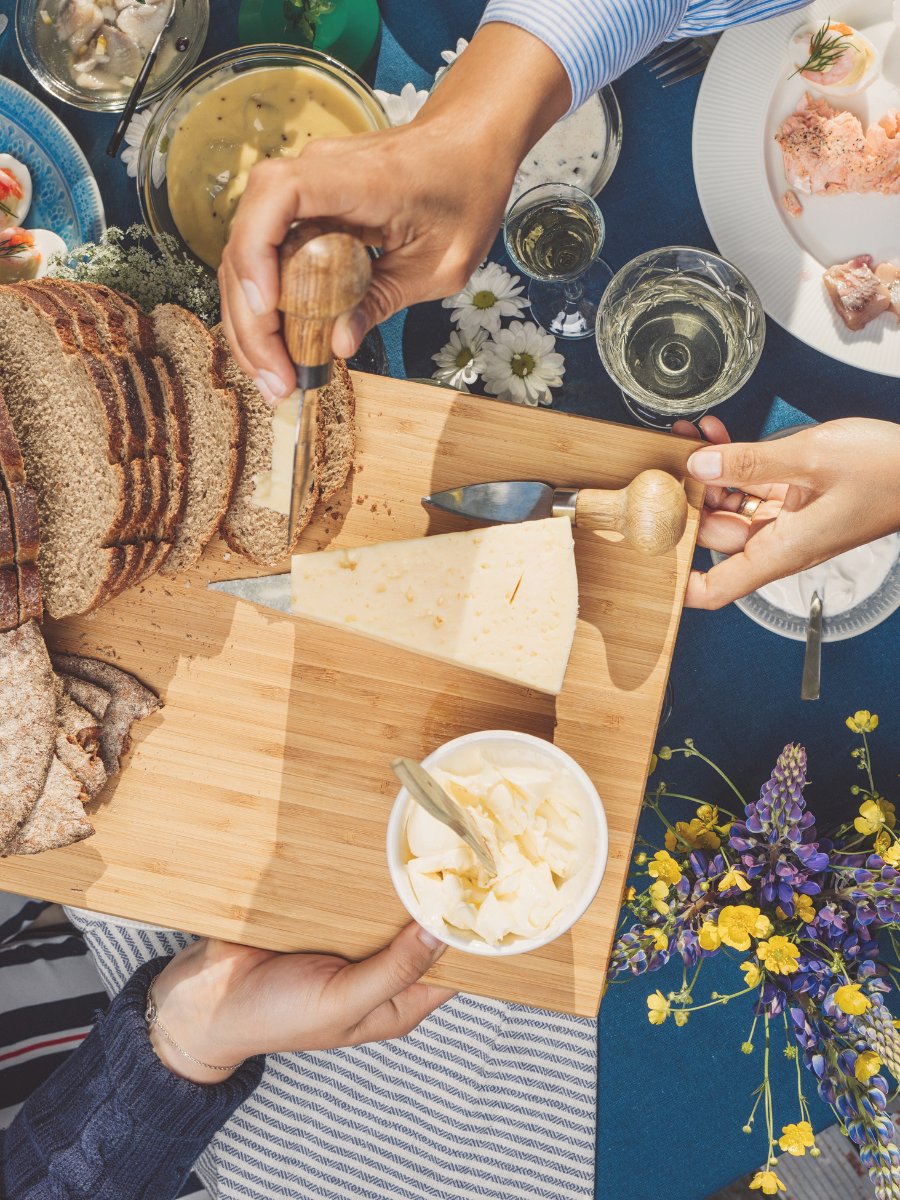(Last week, I mentioned sharing a few of my favorite mindset shifts for taking action toward your goals, particularly when you feel stuck, unmotivated, or don’t feel like you’re making much progress. If you didn’t already have a chance, you can read about mindset shift #1 here.)
For some reason, we think weight loss, body composition, and health goals should be different from other goals we set.
We want results to come quickly and feel easy.
For example, let’s say you set a goal to lose 20 pounds.
Maybe as you change your eating habits, some weight comes off relatively quickly initially (often water weight).
You continue to eat healthier and add in some exercise.
Then, you step on the scale a week later, and the number hasn’t budged.
You think, “Are you kidding me? What’s the point of doing all this if I’m not even losing weight?”
Or maybe even, “Why did I bother to pass up on that delicious-looking dessert I wanted the other day or get up early to work out if it didn’t make a difference anyway?”
And that’s where you might decide to throw in the towel and revert to your familiar habits.
Or maybe you experience a little streak of success, and you’re feeling really good, so you decide to reward yourself with one of your favorite snacks—let’s say, a few handfuls of delicious caramel popcorn.
But then that leads you right into that leftover holiday chocolate you’ve been trying to avoid, and things start to snowball.
Similar to the previous example, it’s “game over,” so to speak. You’ve ruined your “perfect” streak.
A BIG part of the problem is that we focus too much on the end result and not enough on the daily habits that will lead us there.
Of course, I want my clients to set big goals for themselves and have a clear vision of what success looks and feels like to them.
But it’s also imperative to focus on the little wins and small measures of progress along the way to keep moving forward.
Otherwise, it’s a recipe for discouragement and quitting when “setbacks” happen, which inevitably happen to the best of us.
Mindset Shift: Devote yourself to the process, not the outcome.
For example, rather than devoting yourself to losing “20 pounds” or getting to your “ideal weight,” you commit yourself to the process of getting to that outcome instead.
In other words, you’re not devoting yourself to a number on the scale (which is often arbitrary) but rather the process of who you need to become to get to your desired outcome.
This “process” includes the inward and outward actions that lead you to your desired result.
The “process” might include:
- Eating more whole foods and less heavily processed ones
- Preparing more meals at home
- Adding in some exercise or other forms of movement into your day
- Limiting snacking as entertainment
- Allowing more urges (and the discomfort that comes along with them)
- Limiting negative self-talk about your body and food choices
- Planning and making some decisions about your eating ahead of time
- Keeping a food journal to hold yourself accountable, and maybe noting how certain foods affect your digestion and energy
- Being gentle with yourself when you do “slip up,” but also not perpetually letting yourself off the hook either because you’re avoiding feeling any discomfort
- Showing up imperfectly rather than not at all because you’re afraid to fail
Of course, everyone’s process will look different, and you should focus on the areas that will make the most significant difference for you.
Just remember that your outward actions (or lack thereof) will be significantly determined by what you think and how you feel, which is why focusing on your mindset (as an inward action) should also be a part of the process in which you’re committing yourself.
By devoting yourself to the process, rather than the outcome, you also:
- Build consistency with your habits
- Become more disciplined in your daily life
- Teach yourself the pleasure of delayed gratification
- Increase self-confidence and self-trust (as a result of showing up and keeping your word to yourself), which equates to a better relationship with yourself overall
You can have a big goal you’re working towards, but even if you don’t hit it in the time you thought you would, you’re still much further ahead than when you started.
Nobody can take away all the hard work and dedication you put in along the way—physical, mental, and emotional.
Also, when you have a collection of smaller wins under your belt, things start to feel easier, and you’re likely to feel more motivated to continue onwards until you reach your goal.
At this point, you might also consider re-evaluating your goal—does it still make sense? Does it still feel good to me?
For example, if you had set a weight loss goal for yourself, you might feel great with the progress you’ve made thus far and have no interest in losing anymore.
Maybe your health has improved, and you’re feeling more positive about your eating habits, lifestyle, and body overall.
I’ve had this happen with clients many times.
She thinks that she’ll be most happy at a certain weight. But then she gets within 5-10 pounds (or more) of her initial goal and realizes that she doesn’t need or even want to lose more weight.
She’s gotten a handle on the habits impacting her negatively, and she loves how her clothes fit.
Overall her relationship with food (and herself) has significantly improved, which often is what she truly wanted for herself in the first place.
As a result of the work she’s put in, her self-confidence and self-love have grown immensely.
Now she’d rather focus on maintaining the changes she’s made while pursuing other goals.
As you devote yourself to the process, you reap the rewards and benefits of the person you become along the way, regardless of when (and if) you arrive at your original goal – which may even begin to feel irrelevant.
And keep in mind that you get to redefine what success looks like for you at any step of the way!
Love Elaine
***
Ready to permanently lose weight, stop overeating, and uplevel your relationship with food?
Learn more about my private 1:1 program here.
Download a copy of my Elegant Eating Handbook to learn simple and effective strategies for permanently living at your natural weight.

Hi! I’m Elaine, a Certified Nutritionist and Master Certified Health Coach. I support women in achieving their health and body goals while prioritizing a peaceful and balanced relationship with food.

Get a free copy of my handbook!
The Elegant Eating Handbook: Timeless Strategies for Lasting Weight Loss and a Peaceful Relationship with Food.
share with friends
keep reading...





[…] haven’t already had a chance, you can read the previous mindset shifts I discussed here and here. This will be the final installment of the […]